This piece is part of a series remembering the life, career, and legacy of Helmut (Hal) Sonnenfeldt — a member of the National Security Council, counselor at the Department of State, scholar at the Johns Hopkins School of Advanced International Studies (SAIS), and Brookings expert.
It is an honor to contribute to remembering a great American public servant, Helmut (Hal) Sonnenfeldt. Hal played an important role in my career, and I feel deep appreciation for his professional courtesy to me.
Others will contribute pieces more scholarly than mine, which is more a personal reflection and remembrance of a fine man. I do, however, recommend reading Hal’s superb July 2000 oral history interview with the Association for Diplomatic Studies and Training. It captures Hal beautifully, both substantively and personally.
Although born almost 20 years apart, Hal and I had similar elements in our backgrounds. He was born in Berlin; I was conceived in Berlin (my parents married there on March 20, 1947, and I was born in the United States on December 19, 1947). We both served in the military, in the Pacific in wartime and in Germany in peacetime.
I started my Washington career in 1976 during the Ford administration. Hal was then the powerful and influential counselor of the State Department, while I was the lowest-ranking member of the National Security Council Staff. We attended several interagency meetings together, he at the table, I in a chair along the wall. You were struck immediately by Hal’s intellect, excellent use of facts, and ability to press his points, both forcefully and effectively.
My real introduction to Hal came via his wife Margie, a force in her own right, who visited me both at the National Security Council and later at the State Department on behalf of her clients and causes. Margie was especially active in advocating for the oppressed Baha’is in Iran.
What began as professional relationships with Margie and Hal became a personal relationship with both of them for my wife Holly and me. The Sonnenfeldts and Kimmitts got together both as couples and in small groups of friends. These personal interactions opened an immensely valuable channel between Hal, the seasoned foreign policy professional, and me, the youngest person to serve as undersecretary of state for political affairs and the second-youngest to serve as ambassador to Germany.
Both when I was at the State Department and later in Bonn and Berlin, Hal would stop by or call whenever he thought we should be in touch. He never overplayed his hand, both because he knew the pace of my job and also because he had other close contacts in the George H.W. Bush administration, especially Larry Eagleburger and Brent Scowcroft.
For me, Hal was a wonderful mentor on how to be an effective senior official at the State Department, a sprawling bureaucracy that can both overwhelm and wear down the hardest of workers. Hal knew I was experienced in the interagency aspects of my job, having served 100 months at the National Security Council under three presidents and five national security advisors. But he taught me how to be equally effective inside State and with the over 150 embassies abroad that reported to me.
Hal was also a wonderful substantive adviser, especially as we experienced the dramatic events of 1989-91 that we Cold Warriors had fought for but never expected to see happen: the dismantlement of the Iron Curtain between Austria and Hungary, the fall of the Berlin Wall, the reunification of Germany, and the collapse of the Soviet Union. Even as these events in Europe unfolded fast and furious, we also were dealing with Tiananmen Square, the crisis in Panama, the end of apartheid, and the Gulf War.
Hal was someone I could always count on to offer an interesting historical perspective or innovative policy idea at just the right moment. I felt honored to have in Hal a “one-man kitchen cabinet,” who was always available but never a bother (as outside advisers, even those with the best of intentions, sometimes are).
What Hal did best was look around the corner at important issues that were developing even as we in government dealt with the urgent issues of the day. One of my important responsibilities as undersecretary of state was leading U.S. government efforts to resolve regional conflicts. Hal understood quicker than most that, because the transitions and tumult in Europe would be the consuming Soviet priority, there was an opportunity to improve our interaction on European issues by cooperating to resolve ongoing conflicts elsewhere. And from 1989 to 1991, we saw Soviet forces leave Afghanistan, Cubans leave Angola and Mozambique, East Germans leave Eritrea, and Vietnamese leave Cambodia. We also saw the Soviet Union vote with the United States on every single U.N. Security Council Resolution during the Gulf War, effectively abandoning its long-time client and customer Saddam Hussein.
Not all went as well, however. For a variety of reasons, including what I term “victory fatigue” coming out of the successful Gulf War effort, we missed opportunities in the late spring of 1991 to shape and influence better results in then-Yugoslavia and North Korea. And, at a personal level, I began to disengage from the interagency process as I prepared to leave for Bonn as the first American ambassador appointed to a united Germany in over 50 years.
Hal and I remained in touch, though less frequently, when I was in Germany. Each of those important interactions helped me be a better ambassador to a very different Germany than Hal and I had experienced and engaged during the Cold War. Hal helped me shape the theme of my tenure: Germany was an important friend and ally during the Cold War, and they would be equally important in the post-Cold War period. But the economic and financial dimensions of the relationship would in the future be as important as political and military dimensions, especially as U.S. forces declined in number and Germany focused on bringing economic opportunity to the former East German states.
One very personal and lasting contribution Hal made occurred at the 1993 Munich Security Conference, where he was a regular attendee. When a presentation in the main conference room at the Bayerischer Hof Hotel went on too long on Saturday morning, I discreetly stepped out and went to the delegates’ lounge. There I found Hal deeply engrossed in the weekend edition of the Financial Times. While I read the FT religiously during the week, with five young children at home I did not often have time for the weekend edition. Hal told me how much he enjoyed the breadth of topics covered in the weekend FT, saying he agreed with the German notion that on weekends you needed to step back from your regular sources of information to broaden your perspective and make you not only a fuller person but also a better contributor when you got back to work. I have not missed an edition of the weekend FT since.
So Hal Sonnenfeldt, mentor and friend, as we say at West Point when we lose an esteemed fellow graduate: “Well done. Be thou at peace.”
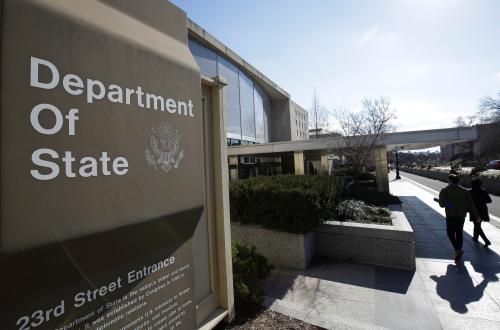
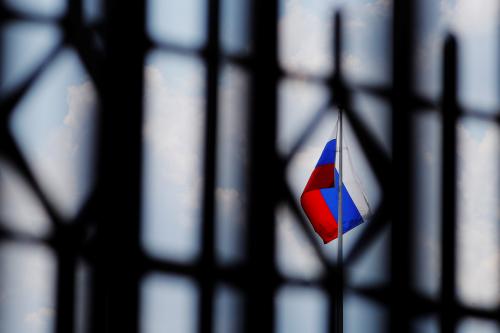
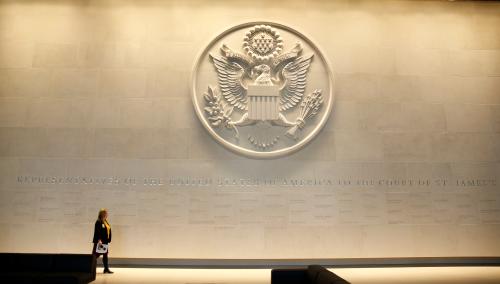
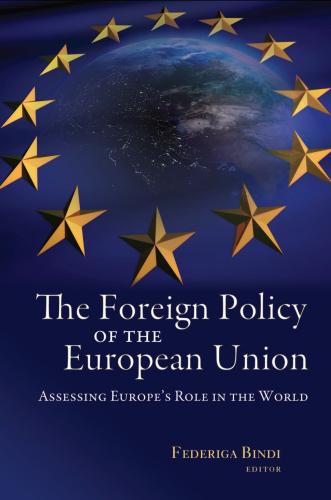

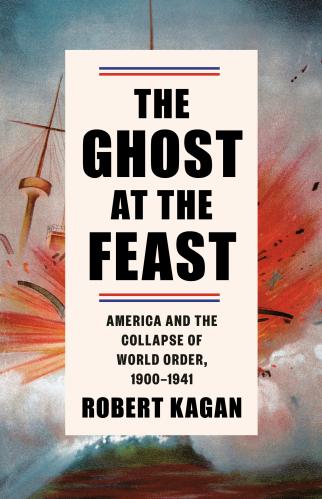


Commentary
Remembering Hal Sonnenfeldt, a key figure during critical U.S. foreign policy moments
October 17, 2019